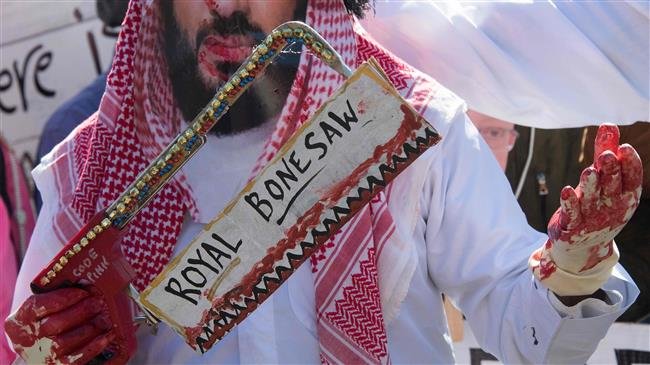
RNA - “No one will invest [in the project] for years,” the de facto Saudi ruler said, according to a colleague of those in the meeting, Financial Times reported.
His comments were a recognition that the crisis triggered by the killing of journalist Jamal Khashoggi threatens to undermine his bold plans to modernise the conservative kingdom with the backing of foreign capital and expertise.
Neom — the largest and most ambitious project announced by MbS — was always considered high risk, a start-up city founded on cutting-edge technologies from robotics to artificial intelligence. But it is now being pushed on to the backburner as the crisis caused by Khashoggi’s murder jeopardises the kingdom’s ability to attract the financing and high-tech skills needed for it and other developments.
“Neom is in doubt for sure,” one private sector consultant stated, adding that “certainly, our [government] clients are not outward facing at the moment”.
Since the journalist’s killing, advisers to Neom including the architect Norman Foster have distanced themselves from the project, underscoring the political and reputational risk attached to being associated with the crown prince.
MbS promised the businessmen he met that the oil-dependent kingdom would invest more heavily in the traditional economy to compensate — a humbling about face for a ruler who had put weaning Saudi Arabia off crude at the heart of his reforms.
“Saudi Arabia is going back to what has been tried and tested,” Steffen Hertog, a Gulf expert at the London School of Economics, said, adding that “They are going back to meat and potatoes”.
Neom and the government did not respond to requests for comment.
The economy was already struggling before Khashoggi’s killing in October sparked the kingdom’s biggest diplomatic crisis with the West since the September 2001 attacks in the US. But the resulting scrutiny of MbS has forced him to turn to hobbled local businesses as overseas appetite evaporates and he seeks to shore up domestic support.
In recent weeks, corporate leaders have been brought into private sessions with the crown prince to relay the challenges they face as they struggle with sluggish economic growth and depressed sentiment.
“The big [Saudi] families are hurting, and they are telling the crown prince how,” one banker briefed on the meetings stated.
Such conversations are testament to how the fortunes of MbS have changed.
Located on the kingdom’s North-Western coast, Neom for now consists of just a couple of palaces, where King Salman holidayed over the summer instead of his usual getaway spots in Morocco and Europe. It also includes a resort that has hosted delegations of financiers and experts flown in to brainstorm ideas next to beaches that are sandwiched between craggy mountains and shark-infested waters. But it has become more difficult for MbS to lure investors.
He unveiled the embryonic city at a glitzy investor conference last year that drew the world’s most powerful bankers and businessmen and was dubbed “Davos in the Desert”. This year’s sequel event — held three weeks after the killing of Khashoggi — was boycotted by many global financiers.
Masayoshi Son, Softbank’s founder who has relied on $45bn of Saudi funding for his Vision tech fund, told the crown prince that the Khashoggi crisis had put him in a difficult position, people briefed on the meeting revealed. The headstrong prince apologised.
A $200bn solar project with SoftBank, which was already deemed outlandish and unfeasible according to those familiar with the thinking of the energy ministry, has been downsized, two people close to the deal noted.
British entrepreneur Sir Richard Branson also halted talks with Riyadh over its proposed investments into his space companies, spurring the kingdom to terminate plans for further talks on the Virgin Hyperloop One transport venture.
Several inward investment deals in manufacturing and retail have also been put on ice, say bankers and lawyers.
In the biggest pre-Khashoggi setback to bin Salman’s ambitious reform agenda, the $100bn initial public offering of state energy giant Saudi Aramco was postponed indefinitely due to legal concerns and the kingdom’s inability to achieve the valuation it wanted.
Without the IPO proceeds, Saudi Arabia’s Public Investment Fund, which is the vehicle leading many of the crown prince’s developments including Neom, is now scrambling for cash.
An alternative plan for Aramco to buy PIF’s stake in Sabic, a petrochemicals company, for around $70bn is facing roadblocks including tough market conditions for issuing bonds and loans.
Sentiment in the private sector, battered by years of austerity, hit rock bottom in November last year, when MbS locked up bastions of commerce in his anti-corruption crackdown, scaring off foreign investors.
One prominent detainee, the former economy minister Adel Faqih, was the linchpin of the crown prince’s Vision 2030 transformation plan. His detention has slowed down the reform programme as staff were changed and plans redrafted, consultants stated.
847/940